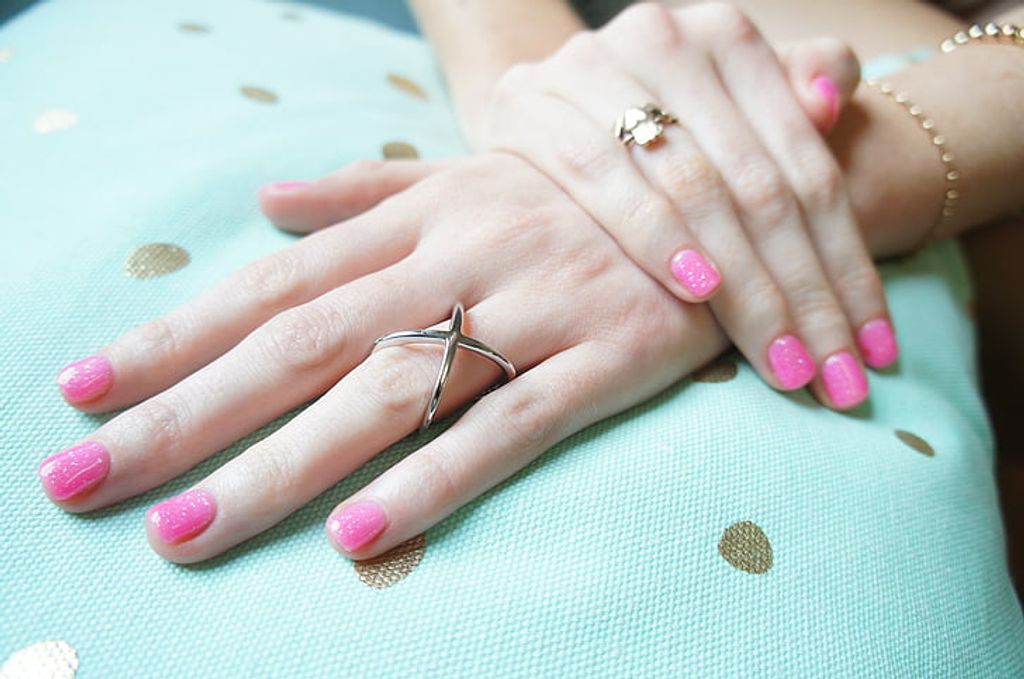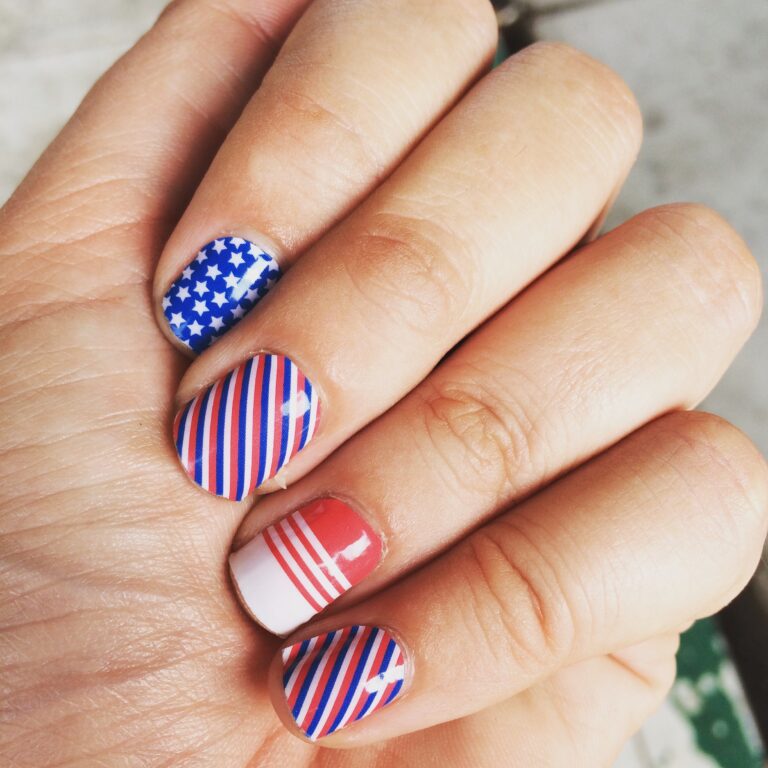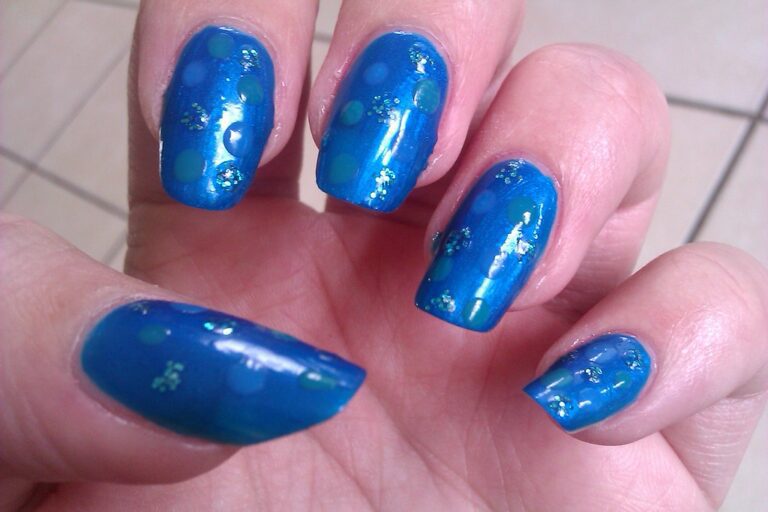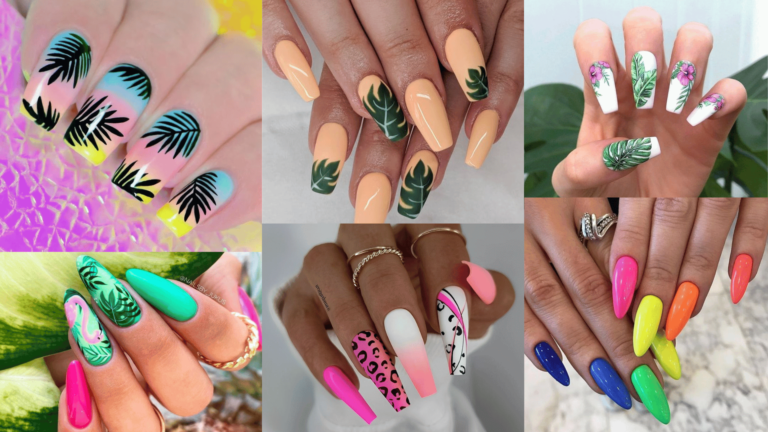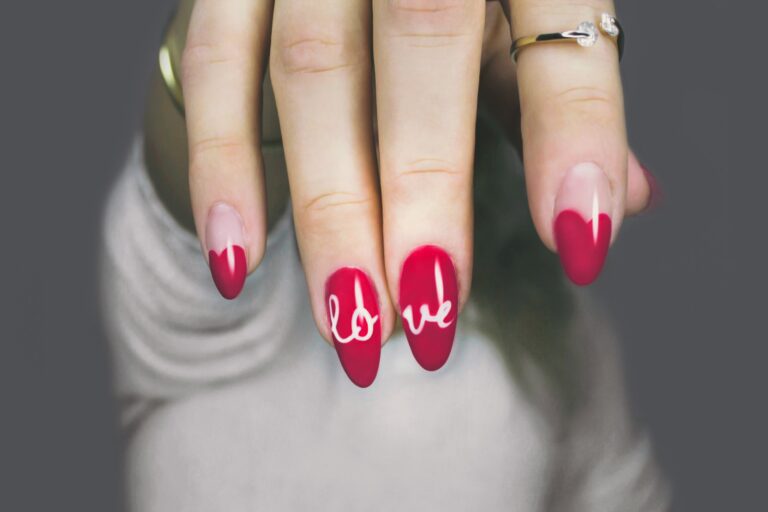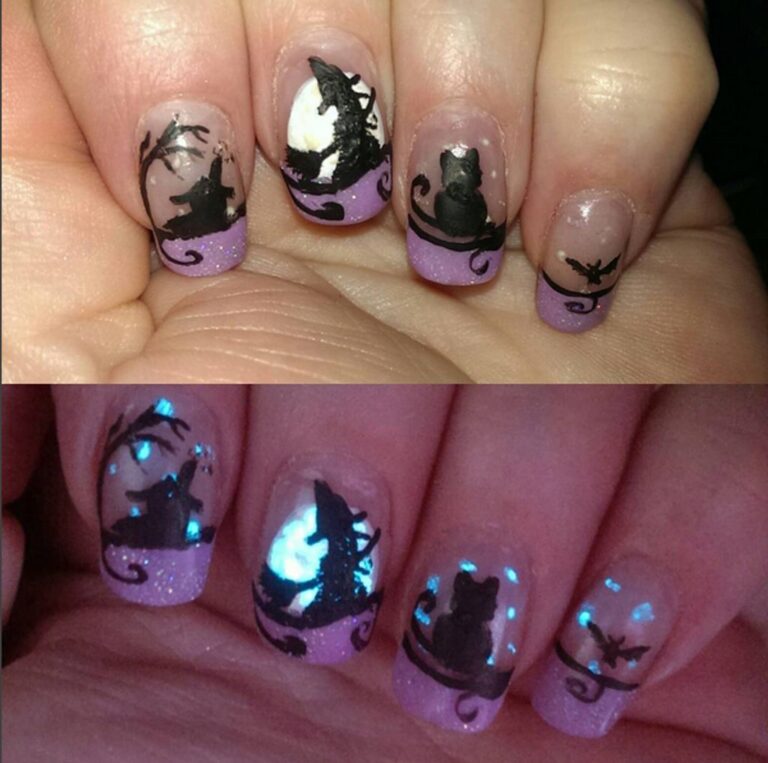“Breaking Free: Dealing with Nails That Keep Breaking”
Nails that keep breaking can be frustrating and often indicate underlying issues with nail health. Understanding the factors that influence nail strength and growth, as well as implementing preventative measures and lifestyle adjustments, can help in breaking free from brittle nails. In this article, we will explore professional insights, DIY remedies, nail care products, and lifestyle adjustments to improve nail health and prevent breakage.
Key Takeaways
- Maintain a balanced diet rich in essential nutrients for optimal nail health.
- Use natural oils and moisturizers to keep nails hydrated and strong.
- Avoid harsh chemicals and products that can weaken nails.
- Regular exercise and stress management techniques can contribute to improved nail health.
- Choose nail care products with beneficial ingredients and avoid those that are harmful to nail strength.
Understanding Nail Strength and Growth

The Anatomy of a Nail
To truly understand why nails break, one must first comprehend their anatomy. A nail is composed of several parts, each playing a crucial role in its strength and growth. The visible part of the nail, known as the nail plate, is made of a hard protein called keratin. This is supported by the nail bed, a layer of skin underneath that provides nourishment and support.
The nail matrix, located at the base of the nail under the cuticle, is where nail growth begins. Cells here multiply and harden to form the new nail plate. The cuticle itself serves as a protective barrier, preventing bacteria and infections from reaching the nail matrix.
Proper care of each part of the nail is essential for maintaining nail health. Regular moisturizing, protection from harsh chemicals, and a balanced diet can help support the nail’s structure and prevent breakage. Here are some key points to remember:
- The nail plate is primarily made of keratin.
- The nail bed provides support and nourishment.
- Growth originates from the nail matrix.
Tip: Keeping your cuticles healthy and intact is vital for protecting the nail matrix from potential damage.
Factors Influencing Nail Health
The health and strength of our nails are influenced by a myriad of factors, ranging from our daily habits to our biological makeup. Moisture levels play a crucial role; too much can lead to softness and weakness, while too little can cause brittleness and cracking. Our behavior, such as nail-biting or using nails as tools, can also contribute to damage and breakage.
Tip: Regularly moisturizing your nails can help maintain optimal moisture levels and prevent splitting.
Injuries and infections can have immediate and lasting impacts on nail health. Age is another significant factor, as nails naturally change over time, potentially becoming more prone to issues. Underlying medical conditions and nutrient deficits are not to be overlooked, as they can directly affect nail growth and strength. A balanced diet and good health are foundational to maintaining strong nails.
Environmental factors, including exposure to harsh chemicals and extreme weather conditions, can also affect the integrity of our nails. It’s important to protect them from these stressors to prevent weakening and breakage.
The Nail Growth Cycle
Understanding the nail growth cycle is crucial for addressing issues with brittle nails. Nails grow from the matrix, the root located under the cuticle, and their growth is influenced by a variety of factors including genetics, age, and health. The cycle can be broken down into three phases:
- Anagen (Growth Phase): This is the active growth period where cells at the root of the nail divide rapidly, pushing the old nail forward and lengthening it.
- Catagen (Transitional Phase): Growth slows down and the nail begins to detach from its blood supply and root.
- Telogen (Resting Phase): The nail stops growing and remains at its achieved length until it is eventually shed or trimmed.
During the anagen phase, nails can grow at an average rate of 3 mm per month, although this can vary widely. It’s important to provide your nails with the right nutrients and care during this phase to ensure strong and healthy growth.
Tip: Keeping your nails hydrated with moisturizers and avoiding harsh chemicals can help maintain nail flexibility and prevent breakage during the growth cycle.
Common Causes of Brittle Nails

Nutritional Deficiencies and Diet
The health of your nails is significantly influenced by your dietary choices. Nutritional deficiencies can lead to nails that are brittle, weak, and more prone to breaking. For instance, a lack of biotin, a B-vitamin, is commonly associated with nail brittleness. Similarly, insufficient intake of other vitamins and minerals such as iron, vitamin C, and calcium can adversely affect nail strength and growth.
Essential nutrients play a pivotal role in maintaining nail integrity. Here’s a list of key vitamins and minerals along with their benefits for nail health:
- Biotin: Enhances nail thickness and reduces splitting.
- Iron: Prevents spoon-shaped nails and vertical ridges.
- Vitamin C: Essential for collagen production, which fortifies the nail structure.
- Calcium: Vital for nail hardness and growth.
- Zinc: Supports nail tissue growth and repair.
Tip: Incorporating a balanced diet rich in these nutrients can be a simple yet effective way to combat nail brittleness. Remember to hydrate adequately as well, since dehydration can also impact nail health.
It’s important to recognize that while dietary adjustments can improve nail condition, they are not a quick fix. Consistent intake of a nutrient-rich diet is necessary for sustained nail health. If you suspect your diet is lacking, consider consulting a healthcare professional or a registered dietitian for personalized advice.
Impact of Chemicals and Harsh Products
Frequent exposure to chemicals and harsh products can significantly weaken nail structure, leading to brittleness and breakage. Nail polishes and removers often contain toxins such as formaldehyde and toluene, which can strip nails of natural oils and moisture. Over time, this can result in dry, fragile nails that are prone to splitting.
Protecting your nails from these chemicals is crucial. Opt for nail care products that are free from harsh substances and look for labels indicating they are ‘5-free’ or ‘7-free’, meaning they lack the most common harmful chemicals. Here’s a list of substances to avoid:
- Formaldehyde
- Toluene
- Dibutyl phthalate (DBP)
- Formaldehyde resin
- Camphor
Tip: When choosing nail care products, prioritize those with nourishing ingredients like vitamins and oils, which can help counteract the damage from chemicals.
Environmental Stressors and Lifestyle
Environmental stressors and lifestyle factors play a significant role in the health of your nails. Frequent, prolonged exposure to water can cause brittle fingernails, making water exposure the most common cause of brittle nails. Additionally, stress management techniques can have a positive impact on nail health, as stress is known to affect the body’s overall well-being. It’s important to be mindful of these factors and take proactive measures to protect and strengthen your nails.
Professional Insights into Nail Care

Dermatologist-Recommended Treatments
When it comes to treating brittle nails, dermatologists often recommend a multifaceted approach. Hydration is key; applying a moisturizing cream or cuticle oil can significantly improve nail flexibility and prevent breakage. For those with severely weakened nails, a keratin treatment may be suggested to restore protein levels in the nail plate.
In addition to topical treatments, oral medications and supplements may be prescribed. Biotin supplements, in particular, have been shown to support nail strength and growth. Here’s a simple list of common recommendations:
- Hydrating cuticle oils or creams
- Keratin-based nail strengtheners
- Biotin supplements for nail growth
- Regular use of a nail file with a gentle grit
Tip: Avoid excessive water exposure and harsh chemicals, as these can strip nails of natural oils and weaken their structure.
Dermatologists also emphasize the importance of gentle nail care practices. Using a glass file instead of an emery board can minimize damage, and avoiding gel manicures that require harsh removal processes can help maintain nail integrity. Regular, gentle exfoliation with products containing glycolic acid can also keep nails in top condition.
Manicurists’ Tips for Stronger Nails
Manicurists, with their hands-on experience, offer invaluable advice for maintaining nail strength. One of the most emphasized tips is the regular use of cuticle oil. Hydration is crucial, not just for the skin but also for the nails. Applying cuticle oil daily can significantly improve nail health by keeping the nail bed and surrounding skin supple and resilient to breakage.
Another key suggestion is to minimize exposure to water and chemicals. Wearing gloves while doing dishes or cleaning can protect nails from becoming brittle. Additionally, it’s important to be gentle when filing your nails. Always file in one direction to avoid creating micro-tears that can lead to splitting.
Remember: Nails are jewels, not tools. Use the appropriate instruments to do tasks that may damage your nails, such as opening cans or peeling stickers.
Lastly, regular, biweekly manicures can help in early detection of any nail issues and keep your nails in top shape. However, ensure that the manicure process is not overly aggressive, as this can do more harm than good.
The Role of Supplements in Nail Care
Supplements play a crucial role in providing essential nutrients that contribute to nail health. Biotin, B vitamins, zinc, and calcium are all known to benefit nail health. Incorporating these supplements into your daily routine can support the strength and resilience of your nails, promoting overall nail health and growth. It’s important to consult with a healthcare professional to determine the appropriate dosage and combination of supplements for your individual needs. Additionally, maintaining a balanced diet rich in these nutrients can complement the effects of supplements, further enhancing the health of your nails.
DIY Remedies and Preventative Measures

Natural Oils and Moisturizers
In the quest for stronger, healthier nails, natural oils and moisturizers play a pivotal role. These substances are rich in nutrients and have the ability to penetrate the nail bed, providing much-needed hydration and flexibility. Regular application of natural oils can prevent brittleness and promote overall nail health.
Jojoba oil, argan oil, and avocado oil are among the most effective moisturizers for nails and cuticles. They are celebrated for their deep moisturizing properties and are often key ingredients in high-quality cuticle oils. Incorporating these oils into your nail care routine can lead to visible improvements in nail strength and texture.
Tip: For best results, warm the oil slightly before application. This enhances absorption, ensuring that your nails receive the full spectrum of benefits.
Essential oils such as tea tree, lavender, and lemon not only offer moisturizing benefits but also come with additional properties like antifungal and antibacterial effects, which can be beneficial for maintaining nail health. However, they should be used with a carrier oil to avoid irritation.
Protective Practices for Everyday Activities
Incorporating protective practices into your daily routine is crucial for maintaining nail integrity. Simple yet effective measures can make a significant difference in preventing nail damage. Here are some key practices to consider:
- Wear gloves when engaging in cleaning, gardening, or any activity that exposes your nails to harsh substances or physical stress.
- Keep nails trimmed to a manageable length to minimize the risk of breakage.
- Avoid using your nails as tools to open cans or remove staples, which can cause splitting or chipping.
Tip: Always keep a nail file on hand to smooth out any rough edges immediately, preventing further tearing or damage.
Remember, consistency in these protective habits is essential for achieving long-term nail health. By shielding your nails from daily wear and tear, you’re setting the foundation for stronger, more resilient nails.
Homemade Nail Strengthening Recipes
In the quest for stronger nails, homemade remedies offer a natural and cost-effective solution. One of the most popular methods is creating a nail strengthening soak. For example, a simple concoction can be made by mixing lemon essential oil, known for its fortifying properties, with a carrier oil like jojoba. This mixture not only strengthens nails but also nourishes cuticles.
Another recipe involves the use of orange juice, which is rich in Vitamin C and aids in collagen production, crucial for nail health. Soaking nails in orange juice for 10 minutes can significantly improve their strength and resilience.
For those seeking a more comprehensive treatment, combining multiple oils such as frankincense, myrrh, and vitamin E oil can create a potent serum. Apply this blend to your nails and cuticles regularly to see a marked improvement in their condition.
Tip: Always use a carrier oil when applying essential oils to the skin to prevent irritation and to help in better absorption.
Remember, consistency is key when using these homemade remedies. Regular application will yield the best results in your journey to achieving stronger, healthier nails.
Navigating Nail Care Products

Identifying Beneficial Ingredients
When it comes to nail care, the ingredients in your products can make a significant difference in the health and strength of your nails. Nourishing ingredients are essential for maintaining nail integrity and promoting growth. Look for products that contain vitamins such as biotin, vitamin E, and calcium, which are known to support nail health.
Hydration is another key factor in preventing nail brittleness. Ingredients like jojoba oil, almond oil, and other natural oils can deeply moisturize and protect your nails. These oils not only hydrate but also provide essential nutrients that help to fortify the nails against damage.
Tip: Always read the label of nail care products to ensure they contain beneficial ingredients and are free from harsh chemicals like formaldehyde, toluene, and phthalates that can weaken the nail structure over time.
Products to Avoid for Fragile Nails
When nurturing fragile nails back to health, it’s crucial to be mindful of the products you use. Harsh chemicals found in many nail care products can exacerbate brittleness and impede recovery. For instance, nail polishes and removers containing substances like dibutyl phthalate, formaldehyde, and toluene should be avoided due to their damaging effects on nail integrity.
Acetone, a common ingredient in nail polish removers, is particularly drying and can weaken the nail structure over time. Instead, opt for acetone-free formulas that are less aggressive and more nail-friendly. Similarly, products that promise instant strength may contain formaldehyde, which can initially harden nails but ultimately lead to increased fragility.
Tip: Always read labels carefully and choose nail care items that are free from aggressive chemicals. Look for water-based products and those that promote hydration and nourishment.
In addition to chemical considerations, physical products such as artificial nails and nail wraps can also cause damage by creating a barrier that prevents the nail from breathing and recovering. It’s best to give your nails a break from such enhancements until they regain their strength.
Top-Rated Nail Strengtheners and Hardeners
In the quest for resilient nails, the market offers a plethora of nail strengtheners and hardeners that promise to fortify and rejuvenate brittle nails. However, not all products are created equal. It’s essential to choose formulations that have garnered positive feedback for their efficacy. Below is a list of top-rated nail strengtheners and hardeners that have been lauded for their performance:
- Mavala Scientifique Penetrating Nail Hardener
- Revitanail Nail Strengthener
- Onyx Hard As Hoof Nail Strengthener Cream
- Nutra Nail 5 to 7 Day Growth Treatment
- duri Rejuvacote 1 Nail Growth System
- SI-NAILS Nail Strengthener Cuticle Serum Treatment
Each of these products brings a unique blend of ingredients designed to penetrate the nail and improve its condition over time. When selecting a nail strengthener, consider your specific nail concerns and look for products that address those issues.
Tip: Consistency is key when using nail strengtheners. Apply the product as directed, usually once or twice daily, to clean, dry nails for the best results.
Remember, while external treatments can provide immediate reinforcement, long-term nail health is also dependent on proper nutrition and care practices. Incorporate these strengtheners into a holistic approach to nail care for optimal outcomes.
Lifestyle Adjustments for Nail Health

Balancing Your Diet for Optimal Nail Growth
The foundation of strong, healthy nails begins with a well-balanced diet. Ensuring that your body receives the right mix of nutrients is essential for nail growth and resilience. A diet rich in protein, vitamins, and minerals supports the keratin production, which is the primary structural component of nails. Foods high in biotin, such as eggs, almonds, and whole grains, are particularly beneficial for strengthening nails.
Incorporate a variety of nutrient-dense foods to cover all bases:
- Protein sources like lean meats, fish, and legumes
- Vitamin-rich fruits and vegetables, especially those high in vitamin C
- Foods containing omega-3 fatty acids, like flaxseeds and walnuts
- Dairy products or fortified alternatives for calcium and vitamin D
Tip: Consistency is key in dietary habits. Sudden changes or restrictive diets can negatively impact nail health, just as they can affect overall well-being.
Exercise and Blood Circulation Benefits
Regular physical activity is essential for maintaining overall health, and this extends to the well-being of your nails. Exercise, particularly activities that increase your heart rate, can enhance blood circulation throughout the body. Improved circulation means that more oxygen and nutrients are delivered to your nail beds, promoting stronger and healthier nail growth.
- Cardiovascular exercises such as running or cycling
- Yoga and stretching routines that focus on hand movements
- Gentle massages of the hands and fingers
These activities not only benefit your cardiovascular system but also ensure that your extremities, including your nails, receive the attention they need. Increased blood flow can help to prevent brittleness and breakage, as the nails are better nourished and oxygenated.
Tip: Incorporate hand-specific exercises into your routine to directly stimulate blood flow to your nails.
Stress Management Techniques
Effective stress management techniques are crucial for maintaining healthy nails. Meditation, regular exercise, and adequate sleep play a significant role in improving nail health. Implementing these lifestyle adjustments can lead to noticeable improvements in the strength and appearance of your nails. It’s important to prioritize self-care and manage stress effectively to promote overall nail health and well-being.
Taking care of your nails is an essential part of self-care and beauty. Lifestyle adjustments can greatly impact the health and appearance of your nails. At NAILinspire.com, we provide the ultimate online nail art design library to inspire and guide you in your nail care journey. Whether you’re looking for nail art ideas, tips for nail health, or tutorials on nail care, NAILinspire.com is your go-to destination. Visit us today and discover the endless possibilities for beautiful and healthy nails.
Frequently Asked Questions
How can I strengthen my nails naturally?
You can strengthen your nails naturally by using natural oils such as coconut oil, olive oil, or jojoba oil. Massaging these oils into your nails and cuticles can help moisturize and strengthen them.
What are the best nail care products for brittle nails?
For brittle nails, look for products that contain ingredients like biotin, vitamin E, and keratin. These ingredients can help strengthen and nourish the nails, promoting better overall nail health.
Can diet affect nail strength?
Yes, diet plays a significant role in nail strength. Consuming foods rich in protein, vitamins, and minerals, such as fish, eggs, leafy greens, and nuts, can contribute to stronger and healthier nails.
How do I protect my nails during everyday activities?
To protect your nails during everyday activities, consider wearing gloves when doing household chores or working with harsh chemicals. Additionally, avoid using your nails as tools and keep them trimmed to prevent breakage.
Are supplements helpful for improving nail health?
Supplements like biotin, collagen, and omega-3 fatty acids can support nail health and growth. However, it’s essential to consult with a healthcare professional before starting any new supplements.
What should I avoid to prevent nail breakage?
To prevent nail breakage, avoid using harsh nail polishes and removers that contain acetone. Additionally, limit exposure to water and use moisturizing products to prevent dryness and brittleness.

